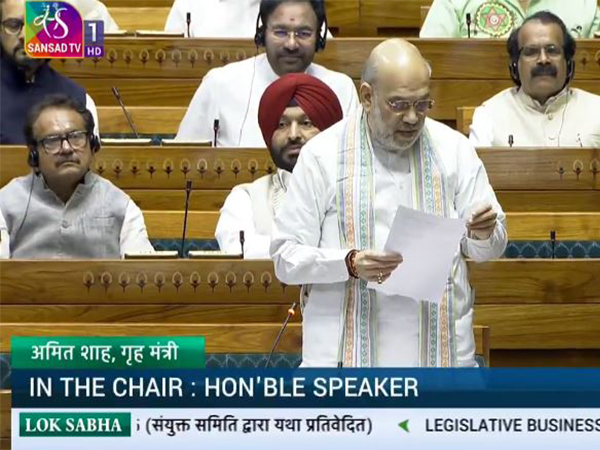New book exposes Pak-based Jaish-e-Mohammad terror network
Oct 22, 2024

By Shivangee Mishra
New Delhi [India], October 22 : Jaish-e-Mohammad (JeM), one of Pakistan's deadliest terror groups, has been behind some of the most devastating attacks on India.
From the 2001 Parliament attack, which brought India and Pakistan to the brink of war, to the 2019 Pulwama bombing that claimed the lives of 40 Indian paramilitary personnel, JeM's operations demonstrate its expertise in high-impact violence.
Abhinav Pandya, Founder and CEO of Usanas Foundation, sheds new light on this shadowy organisation in his latest book, Inside the Terrifying World of Jaish-e-Mohammad, revealing the group's methods, motivations, and Pakistan's deep involvement.
In an exclusive interview with ANI during the book launch, Pandya stated, "This book is about the terrorist organisation Jaish-e-Mohammad, the most lethal and dangerous group for India, comparable to Lashkar-e-Taiba."
He highlighted the unique aspect of JeM's impact on India-Pakistan relations: "The unique part about Jaish is that it brought India and Pakistan twice to the verge of full-fledged war - first in 2001 with the Parliament attack, and then in Pulwama in 2019, which resulted in the Balakot airstrikes."
Pandya provided insights into the group's deadly attacks, revealing how JeM has perfected the art of fidayeen (suicide) attacks, which serve as a key element of Pakistan's proxy war against India. "JeM is the master of fidayeen attacks. Despite its deadly activities, it has managed to stay under the radar compared to other groups like Lashkar. That stealth is a defining feature, and it's one reason I felt this subject needed more focus from think tanks and security agencies," he stated.
The rise of JeM is closely tied to Pakistan's Inter-Services Intelligence (ISI). Pandya explained that Azhar's release from Indian custody in 2000, facilitated by the hijacking of IC-814, was not merely a tactical operation but a strategic move orchestrated by the ISI.
"The ISI staged several failed attempts to free Masood Azhar before organising the hijacking of IC-814," Pandya noted. "Once released, Azhar was given a hero's welcome in Pakistan, paraded through Afghanistan, and soon after established JeM with ISI support."
Pandya's research underscores the deep-rooted connections between JeM and Pakistan's state machinery. "JeM is tied to Pakistan's establishment with an umbilical cord. The ISI supports them with funding, logistics, and safe havens, allowing them to thrive. Pakistan knows it cannot win a conventional war against India, so it uses these proxy groups to wage a hybrid war," he added.
JeM collaborates with other terrorist organisations, including Lashkar-e-Taiba and the Haqqani Network, amplifying the threat to regional security. "These proxies allow Pakistan to create chaos in Kashmir at a low cost," Pandya explained. "Training a terrorist costs only 1.5 to 2 lakh rupees (PKR), and once they're deployed through porous borders, they can harass and embarrass Indian forces, pressuring them psychologically and morally."
Pandya further elaborated on the infrastructure supporting these terror networks: "Pakistan runs a robust infrastructure of madrassas in South Punjab that feeds into these terror networks. Children as young as six are indoctrinated, becoming part of this system that is deeply connected to Pakistan's ISI."
Despite being designated a global terrorist organisation by the United Nations, JeM's leadership continues to operate with impunity. Masood Azhar, the group's founder, remains elusive, reportedly shuttled between safe houses in Pakistan to evade international scrutiny.
While Islamabad often presents itself as a victim of terrorism, the continued operational freedom of groups like JeM exposes the hollowness of such claims. Pandya's book not only delves into JeM's activities but also serves as a stark reminder of Pakistan's enduring strategy of fostering terror proxies.
If left unchecked, JeM will continue to pose a threat to India and destabilise the broader region, fuelling conflict and insecurity for years to come.



















